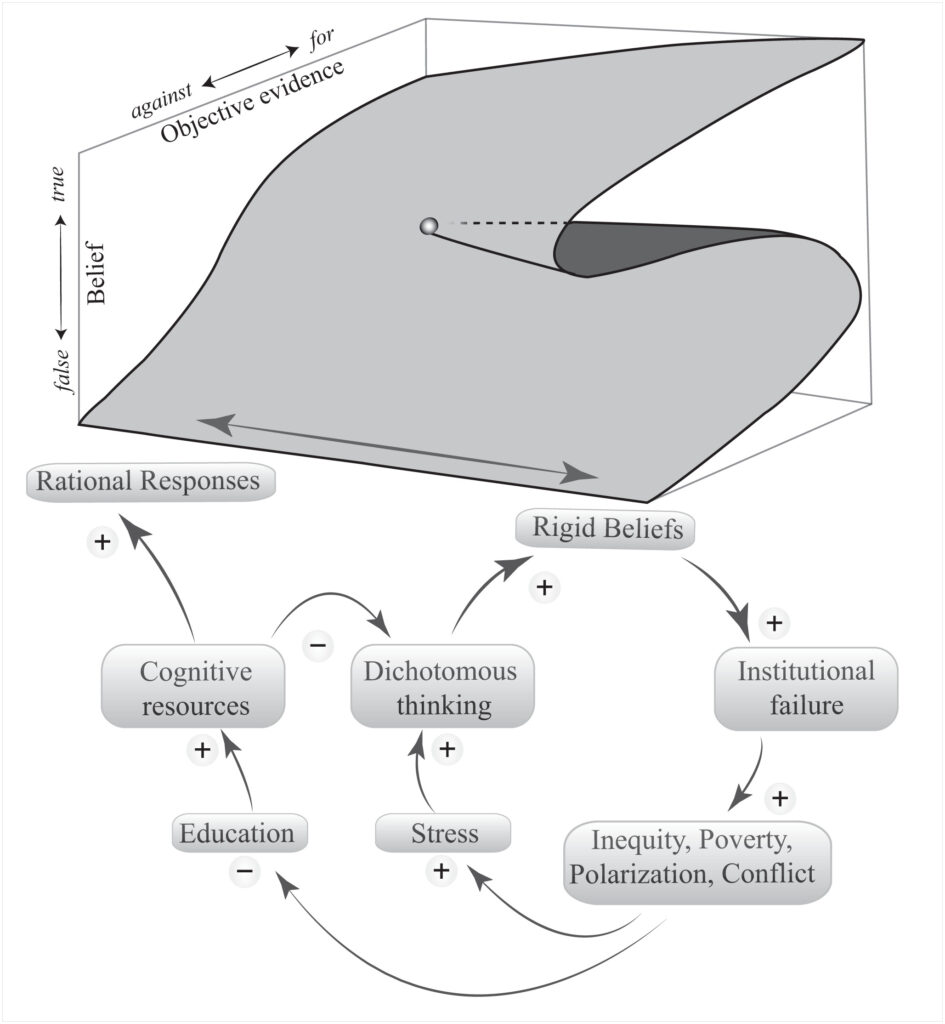Beliefs are a building blocks of society and economy, thanks to their advantage of guiding consistent behaviour and judgments. Yet beliefs need revisions to be a key element of healthy cognition. “When the facts change, I change my mind. What do you do, sir?”, Keynes reportedly answered to an accusation of being inconsistent. Overly rigid beliefs are the basis of many destructive issues for individuals, nature, and society problems—prejudices, discrimination, conspiracy theories, psychiatric disorders. In principle, provision of counterevidence can destabilize rigid beliefs and lead to their revisions. But numerous experiences suggest that this is not that simple. Rigid beliefs show remarkable inertia and require cognitive resource for rational response, often not available.
The paper “Belief traps: Tackling the inertia of harmful beliefs” provides explanation of this inertia using recent findings from neurobiology, psychiatry, and social sciences. The paper presents a unifying framework of how self-amplifying feedbacks shape the inertia of beliefs on levels ranging from neuronal networks to social systems. The chart summarizes it and shows how resilience of beliefs is boosted by stressful conditions.

Black-and-white thinking is a major risk factor for the formation of resilient beliefs. Lack of cognitive resources contributes to this dichotomous thinking. Stress could also exacerbate it. No surprise that conspiracy thinking and psychiatric disorders tend to peak during crises. On an individual level, false beliefs may lead to unwise decisions. On a societal level, unfounded beliefs could lead to behaviour with enormous costs for society and nature—beliefs in conspiracy theories may hamper the functioning of institutions; beliefs about intrinsic capacities related to groups (gender, race) perpetuate discrimination, entrench inequalities, result in underutilization of human potential; belief that some parts of animals—rhinoceros horn, shark fin—works as a medicine drive species extinct. Resulting inequality, poverty and lack of education could further promote stress and lack of cognitive resources, a driving factors of black-and-white thinking, thus closing the loop.
The paper suggests the most effective way to counteract this vicious cycle may be measures reducing social stress. Addressing social factors such as poverty, social cleavage, and lack of education could prevent the emergence of rigid beliefs. Finland national basic income experiment reported positive effects on the sense of well-being of recipients and feelings of trust in other people and the government. Most recent UNDP Human Security Report puts agency at the core of an expanded human security framework, reminding that wellbeing achievements alone are not enough, and help avoid the pitfalls of partial solutions, such as delivering protection with no attention to disempowerment or committing to solidarity while leaving some lacking protection.
